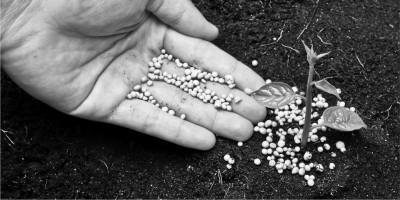Environmentally friendly recovery of phosphate from sewage sludge ash
Phosphate is an essential raw material for plant growth. In order to achieve safe and sustainable access to this important (but finite) raw material in Europe, recovery and recycling of phosphate has become a major political objective within the EU.
That’s why back in 2017, a binding regulation for the recovery of phosphate in medium-sized and large sewage plants was passed in Germany, which is due to come into effect in 2029. A large number of process combinations were available to implement recovery. However, it’s not easy for wastewater treatment plant operators to distinguish between them in terms of sustainability, energy expenditure and environmental compatibility.
Here’s where KWB steps in with our intelligent solution for P-Recycling. With our many years of experience in comprehensively analysing and evaluating innovative technical processes, we advise wastewater treatment plant operators on the technically and economically correct path for them to take to comply with the future mandatory phosphorus recycling laws.
In addition to an ecological analysis, we also provide analyses of the CO2 footprint of the recycled phosphate product and evaluate the process’ cost-effectiveness to arrive at a realistic estimate of the costs for the plant operator.
In the final analysis, the success of the recycled phosphate on the fertiliser marketplace is dictated by whether the recycled product is competitive in terms of quality and pricing compared to conventional fertilisers. Furthermore, only ecologically compatible and simultaneously affordable processes can achieve the goal of recycling phosphate without placing an excessive burden on the environment or taxpayers elsewhere. With P-Recycling, KWB offers a solution which makes all of this possible.





